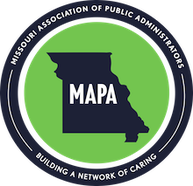Public Administrator
Craig Fuller
101 E. Washington St., Ste. E
Macon, MO 63552
Phone: 660-385-6173
Fax:
660-385-1720
Email: publicadmin1@maconcountymo.gov
Office Hours: 8:30 am to 12:00 pm. and 1-3:30 Monday-Friday
Cathy Harvey, Assistant Public Administrator
The Public Administrator can serve as Guardian, Conservator or both for an individual.
Definition of Guardianship: is the legal process of assisting a person, whose mental disability has caused incompetence, in making decisions for herself/himself regarding personal affairs (such as place of residence and medical care). When a person has been adjudged by the Probate Court to be mentally incapacitated and incapable of making informed decisions without the risk of harm, then a guardian may be appointed. A person under guardianship is known as a ward.
Conservatorship deals only with the financial affairs of an individual. A conservator may be appointed by the Probate Court when an individual does not have the capacity to manage his or her financial affairs. A person under conservatorship is known as a protectee.
Appointment process for Guardian/Conservator
There are four types of mental disability and incapacitation that may cause the probate court to appoint a guardian and/or conservator:
- Mental illness (such as schizophrenia and bipolar illness)
- Mental retardation/developmental disabilities
- Brain injury or disease
- Diseases of the aging (such as Alzheimer’s and other forms of dementia)
To declare someone incompetent, the above disabilities are not by themselves sufficient reasons. To be incompetent, the person cannot make an informed decision without the risk of harm that may be experienced as a result of inability to provide for him/her or manage his/her affairs. Sometimes a conservator may be appointed because the person’s physical ability impairs their ability to handle his/her financial affairs.
Some incapacitated persons are able to make responsible decisions in some areas, but not all areas of their lives. In this situation, guardianship and/or conservatorship may be limited by the court to only those areas in which the incapacitated person is unable to make responsible decisions.
Guardianship/conservatorship is the most restrictive form of protection given to mentally disabled and incapacitated individuals and should be used only when less restrictive measures are not adequate to meet their needs.
The Appointment process:
Petition the Probate Court: Any interested person (called a petitioner) may file for the appointment as guardian and/or conservator naming himself/herself or some other qualified person. The petition is filed in the Probate Division of the Circuit Court in the county where the incapacitated person resides. An attorney is not necessary to file a petition, but an attorney is necessary to present the petitioner’s case at the court hearing.
Notice is required to be served upon the alleged incapacitated person and he/she may retain the services of a private attorney or the court will appoint one to represent him. The attorney will visit the client prior to the scheduled hearing to exchange information that would safeguard and advance the interest of the client.
Court hearing: the person filing the petition must present evidence (medical evidence is required usually without the physician having to appear in court) to demonstrate why the individual needs a guardian and/or conservator and to what degree that person is incapacitated or disabled.
Court costs are established by law. If a person is declared incapacitated, his estate will pay the court costs. If the incapacitated estate does not contain sufficient funds to pay court costs, the County is required to pay. If the person is not found to be incapacitated, the petitioner must pay the costs.
Before appointing a guardian, the court is required to consider the suitability of persons willing to serve.
For example:
- The incapacitated person’s verbal choice expressing what he/she prefers.
- Any eligible person named in writing when the incapacitated person was capable of making and communicating a choice (must have been written within five years prior to the hearing).
- An adult relative of the incapacitated person.
- Other interested persons such as friends or the Public Administrator.
A guardianship/conservatorship is a relationship where one person places trust and confidence in the capability, integrity and fidelity of another person.
When an incapacitated person is under a guardian/conservatorship, the ward/protectee cannot drive, marry, decide where to live, decide his/her medical care, vote or enter into a legal contract unless specified in the letter of appointment. It is in everyone’s best interest, however, to consult with the ward/protectee whenever possible, to have their voice heard in the decision making process.


